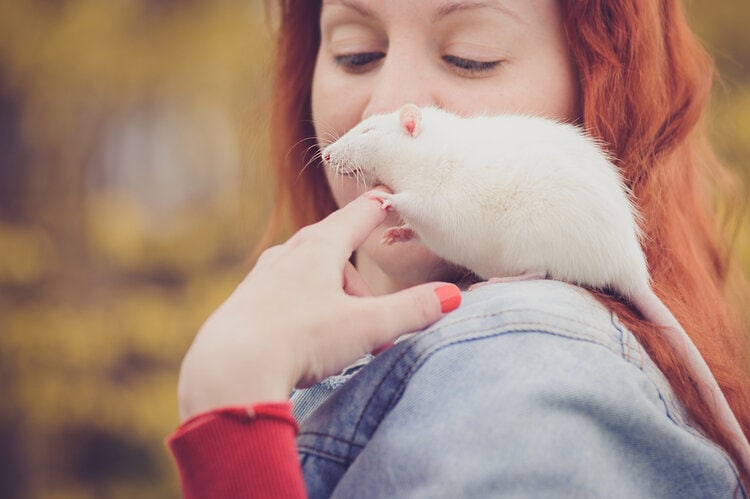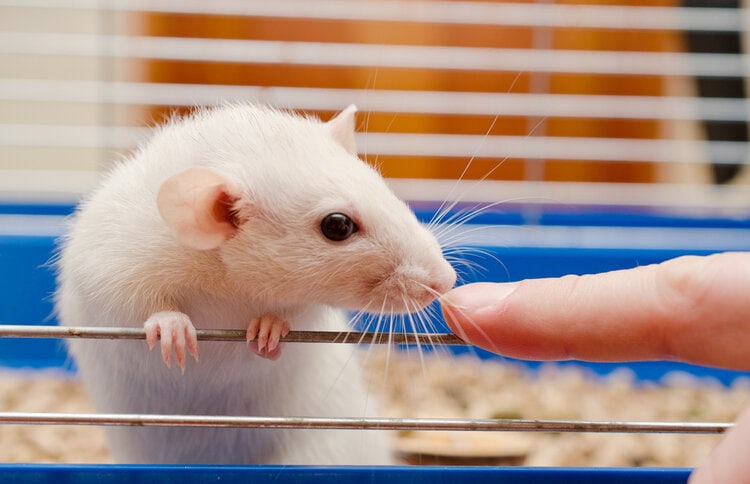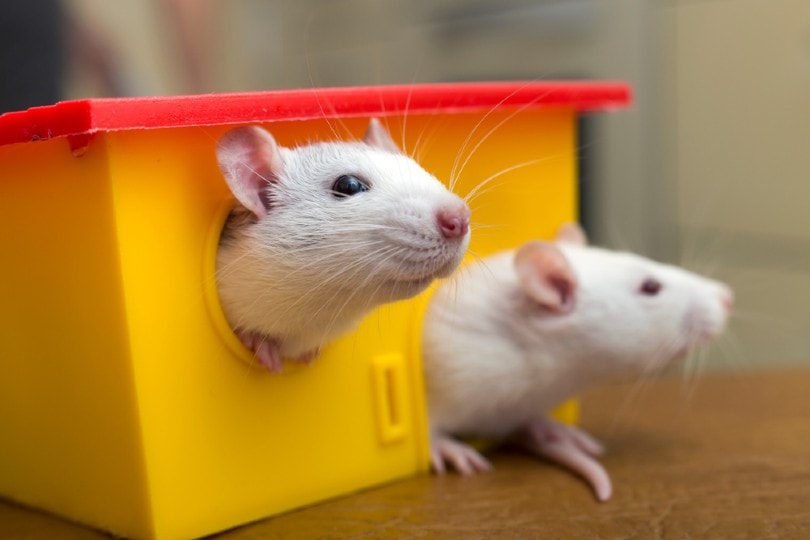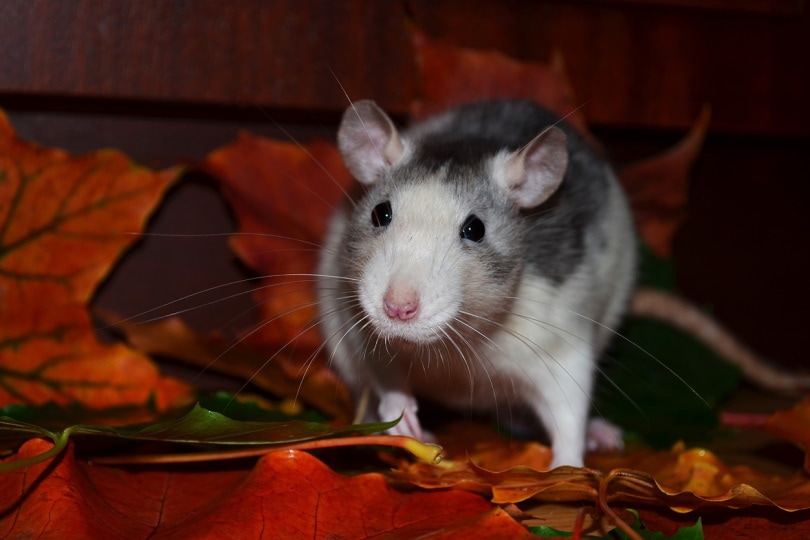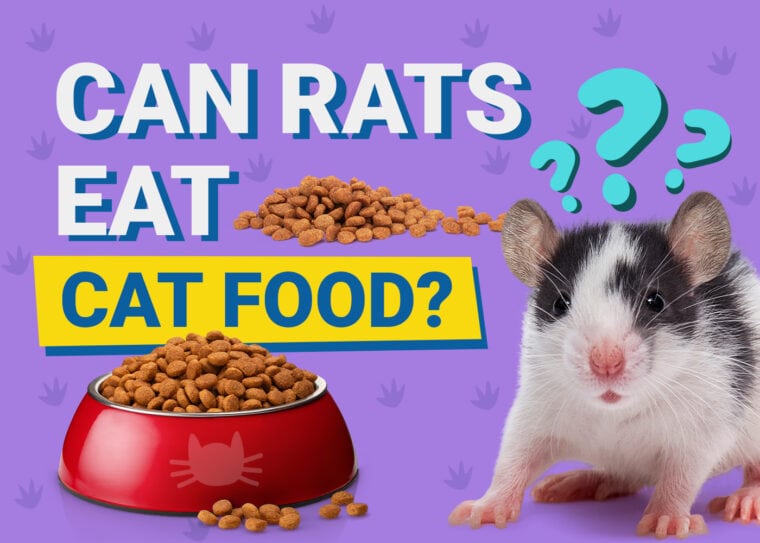
You’ve run out of your rat’s typical food, and now you’re in a rush to find them something to eat. Luckily, you have that bag of cat food sitting in the pantry. Is that suitable for rats?
Cat food is surprisingly suitable for a variety of animals, but rats are not one of them. Rats cannot eat cat food. Cats are obligate carnivores, which means that they need to eat mostly meat. Their food mirrors this with high protein content. Many cat foods contain mostly meat.
However, rats need little protein and meat. Instead, they need a diet containing many different veggies and fruits. Rats are omnivores and cats are carnivores. A diet designed for one of them is not appropriate for the other.
We recommend feeding rats a commercial food specifically designed for them. If you run out, a variety of fruits and veggies will sustain them for a time. However, feeding them mostly a commercial diet designed for rats is vital.
What Kinds of Food Should a Rat Eat?
Cat food is an automatic “no” for rats. It simply doesn’t contain everything that they need and has too much excess protein. In the wild, rats would eat a wide variety of fruits, veggies, grains, and a little bit of meat.
However, as pets, this diverse diet is often difficult to copy. Therefore, we recommend feeding them a commercial diet specifically designed for their species. Rat blocks are your best options, as the rat can’t just pick out their favorite foods.
We don’t recommend choosing dried, mixed rat food. This type of food supports selective eating, which can lead to nutritional problems. They may also not have all the fortified vitamins and minerals that rat blocks usually have.
On top of their regular food, rats also thrive on various fruits and veggies. Lean meats may also be included. However, they should not make up a large portion of their diet.
Cat food does not provide for many of your rat’s needs. A diet high in cat food can lead to nutritional deficiencies and other health issues, as your rat will likely be overeating protein. Therefore, we recommend avoiding it altogether.
Cat food may work fine as an occasional treat. However, there are many better options for you to choose from.
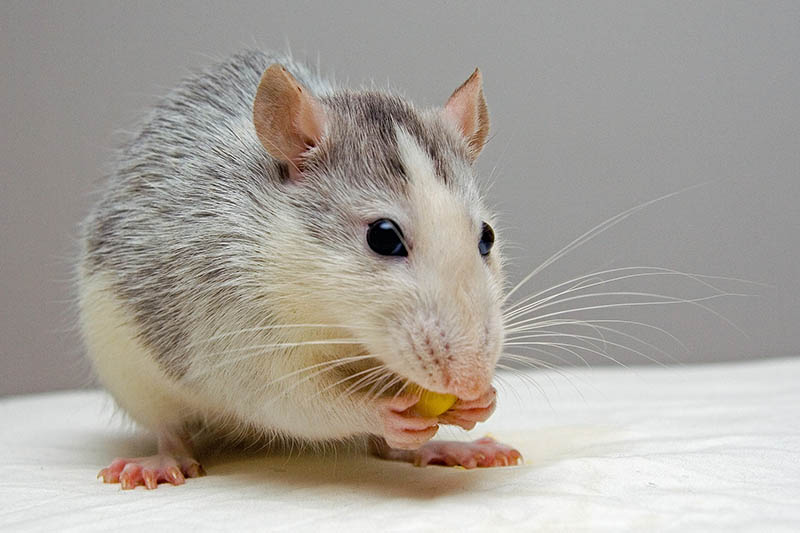
Can Rats Eat Wet Cat Food?
Rats cannot eat dry cat food or wet cat food. Both have a similar nutritional profile and therefore are equally inappropriate for rats.
However, dry cat food is easier to feed. Dry food also tends to be higher in carbohydrates, as the companies add in grains and other items to make the food stick together. Cheaper cat food tends to be the highest in carbohydrates. Therefore, it may be the most appropriate option for your rat if you have no other choice but to feed them cat food.
Some people recommend feeding wet cat food to rats to “bulk them up.” However, it doesn’t contain the vitamins and minerals that they need and has far too much protein. For this reason, we don’t recommend it at all.
Instead, your best option would be to provide appropriate rat foods. These do a much better job at meeting your rat’s nutritional needs.
What Kinds of Protein Can a Rat Eat?
Cat food shouldn’t be provided to rats because of its high protein level. However, that doesn’t mean that rats can’t have any protein snacks — they should just be given in moderation.
Great protein options include lean meats, eggs, cottage cheese, and beans. Cat food can be used in a pinch, but your rat is much better off eating something fresh. Cat food is highly processed. It is much easier to provide your rat with food formulated for them and a few snacks of fresh food items.
Proteins should only be provided to a rat 1–3 days per week. Growing, pregnant, and lactating rats may need more, but no rat should eat protein snacks more than three times a week. Often, increasing their usual food allowance is a better option than supplementing with extra protein alone.

What Happens If Rats Eat Cat Food?
If your rat found a piece of cat food on the floor while they were out playing, you probably don’t have anything to worry about. Cat food isn’t toxic to rats. It won’t immediately harm them. Short-term side effects usually don’t occur.
Instead, the problem arises when you feed them cat food for an extended amount of time.
Cat food does not contain all the nutrients that your rat needs. Therefore, they will develop nutritional problems over time. How fast these problems pop up depends on how much you’re feeding them.
Rats that are only consuming 10% of their diet as cat food will likely not have nutritional deficiencies for a while. They will still be getting vitamins and minerals from other sources.
However, rats that are mainly eating cat food will develop problems much faster. They won’t be eating as many nutrient-rich foods.
We don’t recommend giving any cat food to your rat. It just doesn’t provide enough benefits compared to other foods. Even if your rat needs more protein, beans and eggs are much better choices than processed cat food.
You’ll also have a better idea of what your rat is eating with fresh foods. After all, cat food tends to contain many ingredients, and you aren’t provided with the exact amounts of anything.
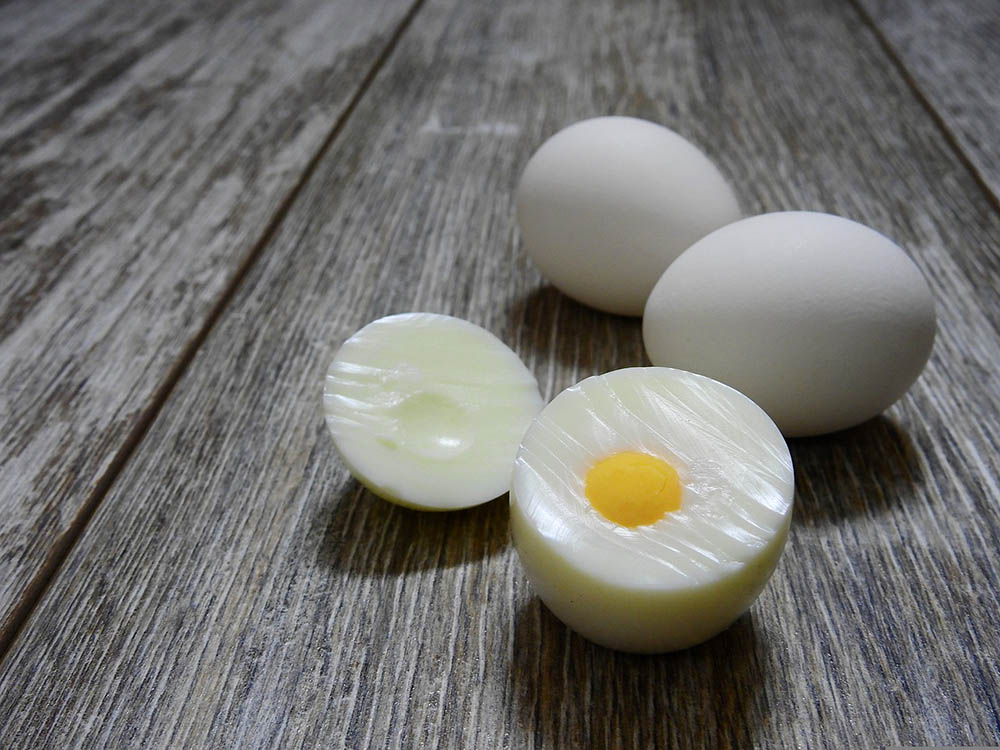
Alternatives to Cat Food
We don’t recommend feeding your rat cat food at all, even as a snack. While they may like it, that doesn’t mean it’s good for them. There are many better options out there.
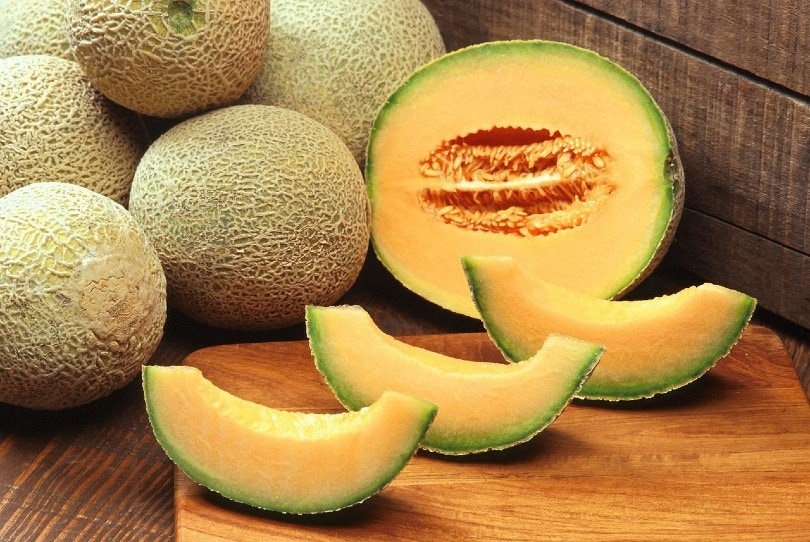
There are many treats that you can occasionally provide as well, such as seeds and bread. However, veggies and fruits should make up the majority of their snacking diet. Add these to your rat’s usual food occasionally.
Fresh fruits are ideal for spicing up a rat’s diet and providing extra nutrients. However, a rat block should be their primary source of nutrition.
Conclusion
Cat food shouldn’t be given to rats. It isn’t toxic and won’t hurt rats if they have a taste. However, it doesn’t provide the nutrients that your rat needs.
Cats are carnivores, while rats are omnivores. Their diets are not interchangeable. One species will not thrive on the diet of another.
Instead, we recommend choosing a commercial food formulated explicitly for rats. This will provide your rat with the vitamins and minerals that they need, while cat food won’t.
If you’re looking for snacks and supplements, there is a massive list of fresh foods better than cat food. While it may be easy to access, it isn’t suitable for your rat.
Related reads:

